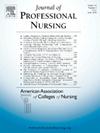虚拟现实技术辅助基于能力的在线执业护士课程(VR-NP)
IF 2.8
3区 医学
Q1 NURSING
引用次数: 0
摘要
在研究生护理教育中使用虚拟现实(VR)模拟是一种不断发展的创新趋势,有助于开展能力本位教育。虚拟现实模拟辅助基于能力的在线执业护士课程(VR-NP)试点创新和质量改进项目旨在将 VR 模拟作为一种教育策略,应用于在线研究生护理项目的高级健康评估课程中,该课程招收了 66 名学生。其中 29 名学生获得了借用的 VR 设备,可在家中完成模拟高级健康评估,其余学生则使用基于屏幕的技术完成相同的模拟。对所有学生而言,每周的模拟活动都与教师通过同步网络会议进行的后续汇报相配合。使用虚拟现实技术的学生完成了由系统可用性量表(SUS)、模拟效果工具(SET-M)和开放式问题组成的实施中期和实施后期调查。使用屏幕技术的学生也完成了类似的调查,但只有 SET-M 和开放式问题。根据实施中期收到的数据,对实施过程进行了必要的调整。总体而言,学生对远距离使用 VR 模拟感到满意,在实施过程中遇到的挑战极少。此外,还分享了将虚拟现实技术融入其他护理研究生课程的建议。本文章由计算机程序翻译,如有差异,请以英文原文为准。
Virtual reality to aid in competency-based online nurse practitioner curriculum (VR-NP)
Virtual reality (VR) simulation use in graduate nursing education is a growing innovative trend that can help with competency-based education. The Virtual Reality Simulation to aid in competency-based online nurse practitioner curriculum (VR-NP) pilot innovation and quality improvement project sought to deliver VR simulation as an educational strategy in an online graduate nursing program advanced health assessment course that enrolled sixty-six students. Twenty-nine of the students were provided loaner VR equipment to complete simulated advanced health assessments from their home while the remainder of students completed the same simulations using screen-based technology. For all students, weekly simulations were paired with follow-up debriefing led by faculty using synchronous web conferencing. Students using VR completed a mid-implementation and post-implementation survey, consisting of the System Usability Scale (SUS), Simulation Effectiveness Tool-Modified (SET-M), and open ended questions. Students using screen-based technology, completed similar surveys with only the SET-M and open-ended questions. Necessary adjustments were made to the implementation process based on data received mid-implementation. Overall students were satisfied with the use of VR simulation from a distance and minimal implementation challenges were encountered. Recommendations for integration of VR into other graduate nursing programs are shared.
求助全文
通过发布文献求助,成功后即可免费获取论文全文。
去求助
来源期刊
CiteScore
4.80
自引率
8.00%
发文量
153
审稿时长
52 days
期刊介绍:
The Journal will accept articles that focus on baccalaureate and higher degree nursing education, educational research, policy related to education, and education and practice partnerships. Reports of original work, research, reviews, insightful descriptions, and policy papers focusing on baccalaureate and graduate nursing education will be published.

 求助内容:
求助内容: 应助结果提醒方式:
应助结果提醒方式:


